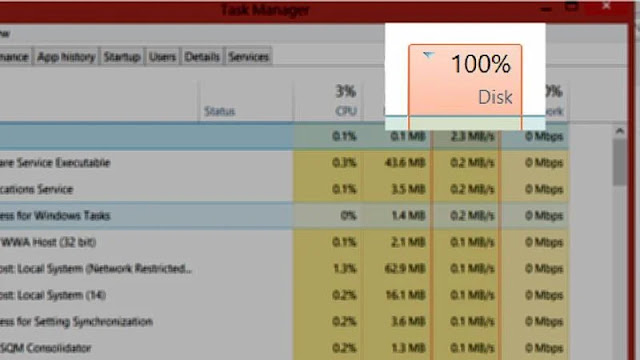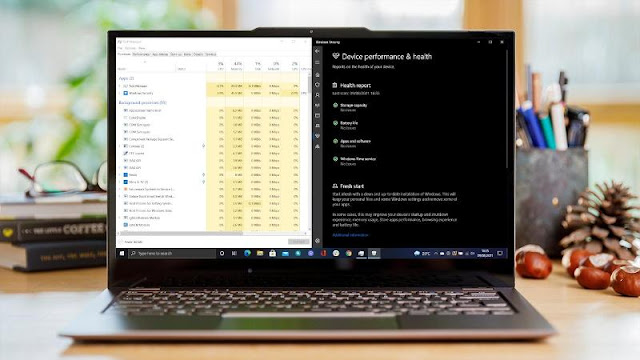 |
| JimmiLarsen via Getty Images |
How can you get the best out of your dishwasher and extend its life? What's better – powder, gel or tablets? Should you use dishwasher salt? What about rinse aid? We've got the answers below.
There are so many brands and varieties of dishwasher that it's hard to give more than an estimate as to how long yours should last. However, a decade is an average lifespan. A top of the range Miele may last twice as long as this, but even the most reasonably-priced appliance should give you at least seven years of solid service.
Here are our tips for getting the most efficient performance for the greatest amount of time.
Read the manual
The best way to extend the life of your dishwasher is to tailor all of your actions to the information in the instruction manual. While manuals are sometimes a nightmare to navigate, and those that are imperfectly translated are often cryptic in their advice, it is worth your time to try to read it through. You may be surprised by your dishwasher's features and functions.
When you get a new machine, it's tempting to treat it the same way you did your last appliance. But technologies change and what gave you the best performance from your old dishwasher may not work for your new one.
Even if you've had your dishwasher for a while, we'd recommend dusting down the manual and having a look-through. If it's made its way to the Narnia of single socks and household scissors, then get online and search for the make and model number of your machine and you should find the product instructions.
Run the clean cycle
You may find that your machine has a self-cleaning cycle. If so, run it! People who previously had older dishwashers without this function are often reluctant to use it as they believe that they are just wasting electricity. But programmes like this are included by engineers for a reason.
Use it
The first piece of advice is that your dishwasher is made to be used. Running it regularly will help you to keep it clean.
And, although it sounds unlikely, it's best for everyone that you do so. Modern dishwashers will actually save you water. They are much more efficient than washing by hand: between three and five times more efficient. They also use less detergent. And, although they obviously use power, so does heating up the water for hand washing.
Dishwashers are also more hygienic. Although few get hot enough to completely sanitise dishes, the fact that they are much more efficient at removing food debris means that there are fewer places for bacteria to live.
Finally, using your dishwasher means the end of the puddles of food-flecked water around your sink, as well as less reliance on your tea towel, which is nothing more than a damp, foetid holiday home for bacteria.
Add dishwasher salt
Dishwasher salt will soften hard water, ensuring that your kitchenware is perfectly washed and that the inside of the dishwasher stays clean. It will also protect your dishwasher from limescale deposits, which will help to keep it running efficiently. Only use dishwasher salt for this. You can’t substitute any other kind of salt as it could damage your dishwasher.
You should top up your dishwasher salt once a month, or when you see that the salt indicator light has come on. Multi-tab detergents usually contain dishwasher salt and their packaging will encourage you not to worry about adding salt separately, but the best advice is to use it no matter what kind of detergent you buy. It will make a difference to the life of your dishwasher, particularly if you’re in a hard water area.
Here’s how to add dishwasher salt.
- Take out the bottom rack so you can access the salt reservoir in the softener unit. It’ll be in the bottom of the dishwasher and will look like a round plug with a screw-on cap.
- Remove the cap. The reservoir should be full of water. If not, get a jug of water and fill it until the water level reaches the top of the reservoir. You’ll only need to do this once. After that, the reservoir should always contain water.
- Your dishwasher should have a funnel that attaches to the reservoir. Attach it before pouring in the dishwasher salt. If you can’t find the funnel, decant your dishwasher salt into a jug and use that to pour it in cleanly.
- Pour in the dishwasher salt until the reservoir is full. Different types of dishwashers will have reservoirs of different sizes but you will probably find that it can hold a large volume of salt.
- Wipe up excess salt with a damp cloth. The salt in the reservoir won’t touch your plates but any salt you spill inside the dishwasher may affect the next wash. If you’ve spilled a lot of salt, you may wish to run the dishwasher empty to ensure it’s clean before you put dishes in again.
- But first – screw the reservoir cap back on again tightly and replace the dish rack.
- Your dishwasher is ready to go.
Should you use a rinse aid?
Rinse aid is a surfactant: it reduces the surface tension of water, which means that it prevents water from forming into droplets and instead allows it to drain away in sheets, preventing spots on glassware and cutlery.
Water marks are more likely in hard water areas. Water droplets evaporate, leaving behind calcium and magnesium deposits.
Rinse aid is not vital to the health of your dishwasher the way that salt is, but if your glassware isn’t coming out of the dishwasher sparkling, but streaky or with spots, then it’s a good idea to use it.
Some people have concerns about the health or environmental effects of rinse aid. If you use it according to the instructions (ie you don't ingest large amounts of it), there is no need to worry about the former. The amount that could possibly remain on your dishes is so minute as to be meaningless. If you have concerns about pumping out more detergents into the environment, opt for an environmentally friendly brand, such as Ecover.
Rinse aid is usually added to a small reservoir in the door of the dishwasher – right next to the tablet compartment. It only holds a small amount of liquid, so be careful not to overfill it. If you spill any inside the dishwasher, wipe it up.
Powder, liquid or tablets?
Powder
Powder is generally your cheapest option. It's also more effective than liquid. One advantage of powder is that it can contain both bleach and enzymes. Liquid detergents can’t do that as bleach, in liquid form, will kill enzymes.
The main disadvantage of powder is that it's messy and takes a bit more effort to measure out the right amount.
Powder has fallen out of favour in recent times with the suggestion that it never completely dissolves and so can build up on the inside of your dishwasher. However, a regular cleaning programme will get rid of any deposits.
Powder has also gained the reputation of being less effective. There’s a good chance that this is because it begins working when it comes into contact with water. If it’s stored in a cardboard box under the sink, it's probably getting damp. This means that it's beginning to react, rendering it far less effective by the time it goes into your dishwasher. If you buy powder, store it in a sealed tub and keep it dry.
Liquid
Liquid is generally considered the least effective option. It's more expensive than powder, less easy to use than tablets and less efficient than either. It's your last resort.
Tablets
Most of the new cleaning advances have gone into tablets and they regularly top product testing tables. Although they are the most expensive option, they are easy to use and contain just the right quantity of each ingredient. Our advice would be to find a well-reviewed tablet (ideally ones that aren't individually wrapped, to minimise their environmental impact) and go with that.
Clean your dishwasher
Keeping your dishwasher clean will ensure it's running efficiently and that no product builds up inside to affect its operation.
Use these tips only with an empty dishwasher. Vinegar is often recommended for cleaning dishwashers but you should use it infrequently and sparingly and not while you’re washing kitchenware. As it’s an acid, vinegar can attack the rubber elements in your dishwasher (such as hoses and gaskets) and if it mixes with salt, it can discolour pans.
- Remove the rack at the bottom of the dishwasher and check the drain to see if any food debris is caught in it. Take out the filter and remove any bits you find, then clean the filter with a soft brush and replace it.
- Place a cup of white vinegar in the top rack and run the dishwasher on a hot cycle. Make sure that the vinegar is in a dishwasher-safe container.
- You can also try a baking soda rinse. Sprinkle a cup of baking soda over the bottom of the dishwasher and let it sit overnight. This is especially effective if your dishwasher has a musty smell. In the morning, run a hot water cycle.
- Don’t use vinegar and baking soda together. While this is sometimes advised, it’s totally ineffective. After an initial explosive acid-base reaction in which carbonic acid and sodium acetate are created (which is why a mix of the two is used – to much better effect – to clear drains), the second reaction is a decomposition into water and carbon dioxide gas. So, essentially, you’ll just be turning your cleaning cocktail into water.
- Don't use vinegar and bleach together – ever, on anything. Together, these two popular cleaning products make toxic chlorine gas.
- Clean the door seals. Use a clean, damp cloth and some washing up liquid and go over all of the seals. Don't use vinegar or bleach as they damage rubber and can leave it stiff and unable to form a proper seal. If areas have become compressed, gently pull them out. Let the seals dry completely before you close the dishwasher door.
- After any cleaning process, open the door on your dishwasher and leave it to air out, ideally overnight.
And that's it. Love your dishwasher and it'll – well, not love you back so much as continue to wash your dishes, so you can sod off to the sofa with a cup of tea. It's the perfect relationship.











This is very educational content and written well for a change. It's nice to see that some people still understand how to write a quality post!
ReplyDeleteChristmas Run
play Squid Game 3D
play Princess Royal Dream Bride Perfect Wedding game for free at Frozen 2